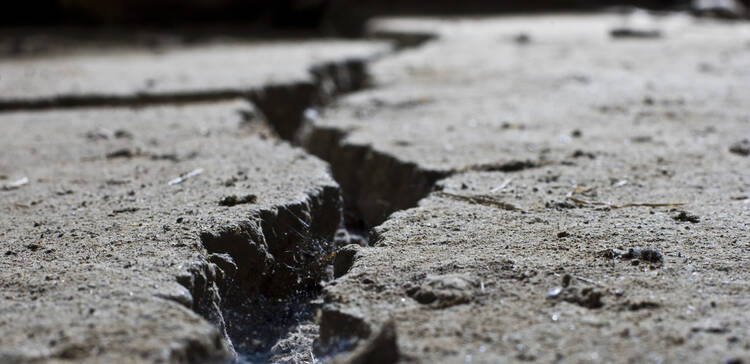Earthquake! Southern California experienced a hefty one on July 29, and rattled residents of Los Angeles were once again the subject of somewhat frenzied coverage from news outlets around the nation for the next 48 hours. As always happens, the phone lines were overwhelmed, but through the wonders of the Internet I established contact from New York with my parents and siblings in and around Los Angeles, only to discover it was just a 5.4 magnitude quake on the Richter scale. Since there is a 99 percent chance of California experiencing an earthquake even more devastating than San Francisco’s 1989 World Series earthquake (a short but destructive 6.9) or Los Angeles’s 1994 Northridge temblor (a long and terrifying 6.7) in the next 30 years, a 5.4 is more a cause for shoulder-shrugging than panic in the Golden State.
Earthquakes are such a constant companion of Californians that they can be the subject of humor and nostalgia as much as terror; there’s even a minor league baseball team outside Los Angeles called the Rancho Cucamonga Quakes, and more than a few businesses incorporate “seismic” in their names as a rather curious badge of honor.
During a freelance writing job I had at a southern California university many moons ago, I worked with a number of consultants from the East Coast, and was fascinated by the difference between East Coasters and Californians in their choice of metaphors. Those born and raised in Los Angeles (there are a few of us) can be baffled by language that incorporates images and experiences common to East Coast urbanites, and two frequent metaphors used in our working sessions caused me some cognitive dissonance: “We want to avoid the third rail of politics here” and “Let’s take this conversation to the 46th floor.” I was well into my 20s before I even knew what a “third rail” on a subway track was, never mind that one should avoid it (apparently it electrocutes you). The second image, I finally reminded my co-workers, made little sense on a campus where the tallest building barely broke four stories. Who in their right mind would want to be on the 46th floor when The Big One hits? Instead, we prefer our proposals earthshaking and seek to avoid emotional aftershocks.
There are many other urban conglomerations on this earth where natural forces periodically remind residents that they are living on borrowed time, and in my experience that knowledge does something to a city’s residents. People live faster, play harder and care a little less for history but much more for the Next Big Thing, because the next day might well be the last one. Norman Klein wrote a revealing book on the subject back in 1997 called The History of Forgetting: Los Angeles and the Erasure of Memory, on Southern California’s love of the new instead of confrontation with reality, and Mike Davis followed two years later with Ecology of Fear: Los Angeles and the Imagination of Disaster.
Mexico City, Tokyo, New Orleans and countless others—all are places where one can see the evidence firsthand that we are but temporarily enjoying Mother Nature’s good favor. Years ago I spent a week in a cheap hotel in Naples, Italy, where a glance out the window showed Mount Vesuvius glowering down at the oft-rebuilt city to its west, steam periodically hissing from sulphurous vents on its lower slopes. Suddenly I was able to make more sense of the absolute human chaos on the streets below me (and, these days, the piles of garbage). The three million Neapolitans settled around Vesuvius know at some level that eventually the volcano will reawaken. Everything must be built and run on the presupposition it will one day soon fall down, be buried or be burned in Naples and everywhere else where humans live their lives with a natural sword of Damocles dangling overhead.
“There is no remembrance of former things,” says Qoheleth in the Book of Ecclesiastes, “neither shall there be any remembrance of things that are to come with those that shall come after.” Tomorrow might be The Big One, in Los Angeles or somewhere else, but in the meantime the sun will be out and the ocean breeze will be blowing, and an act of God is an act of God, after all. Best not to worry.








